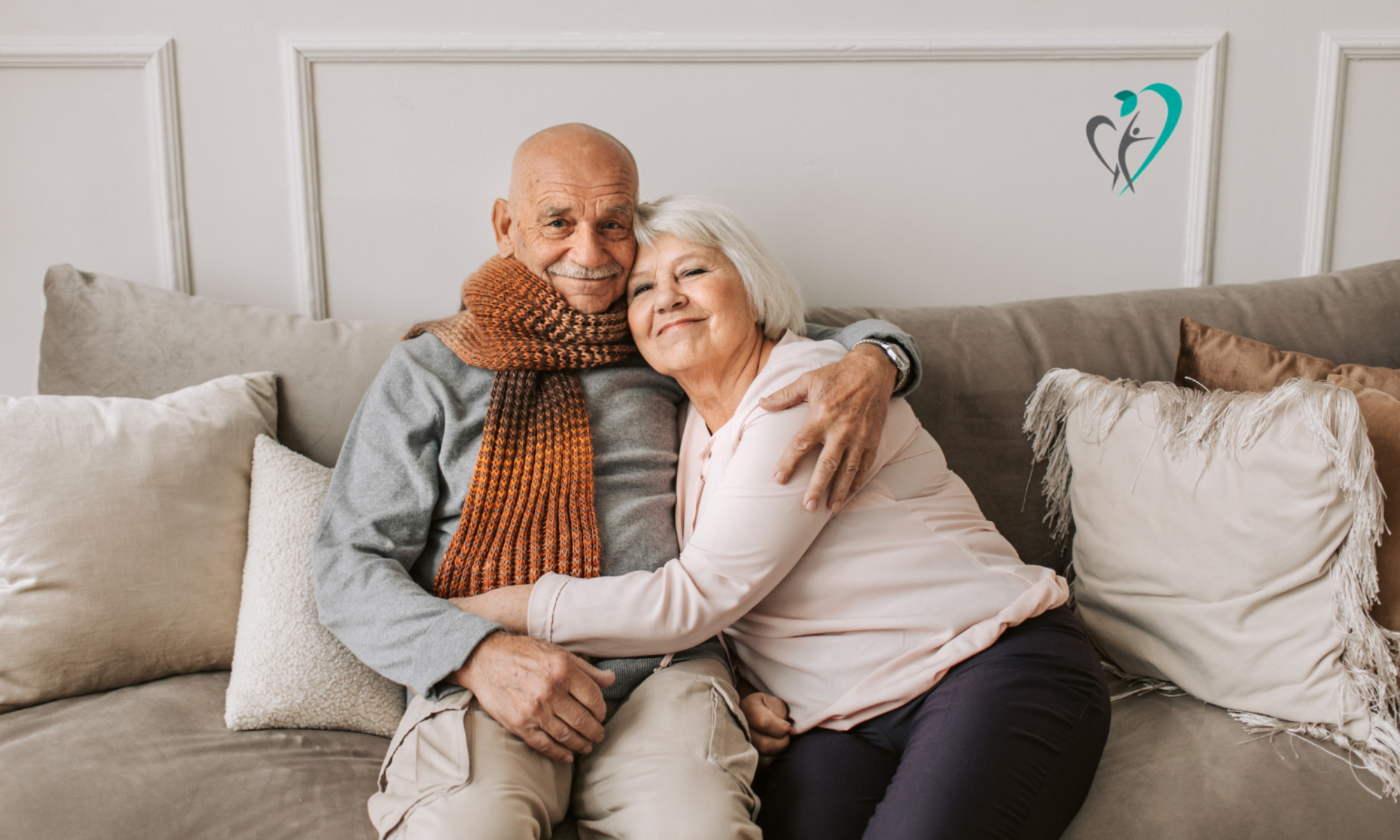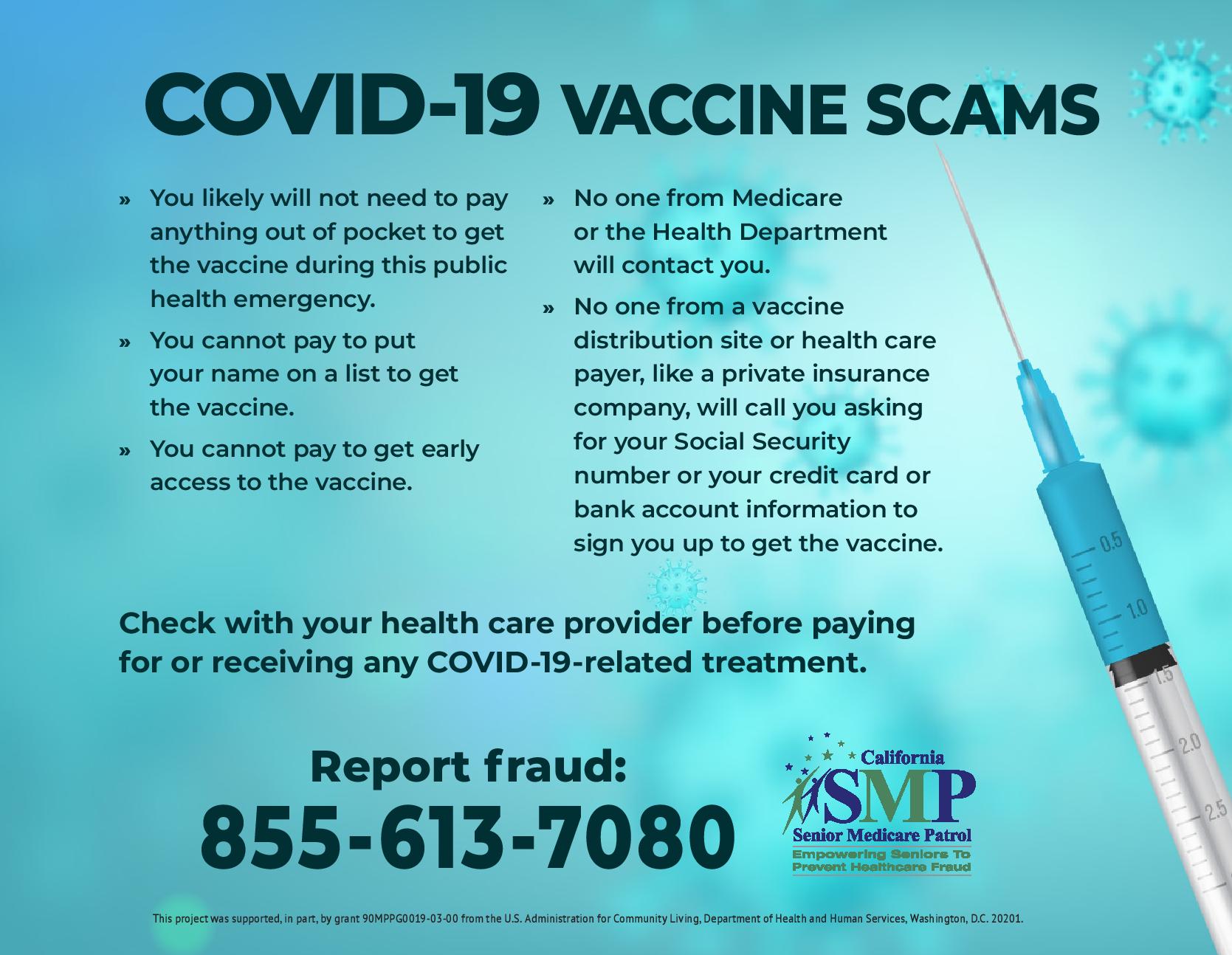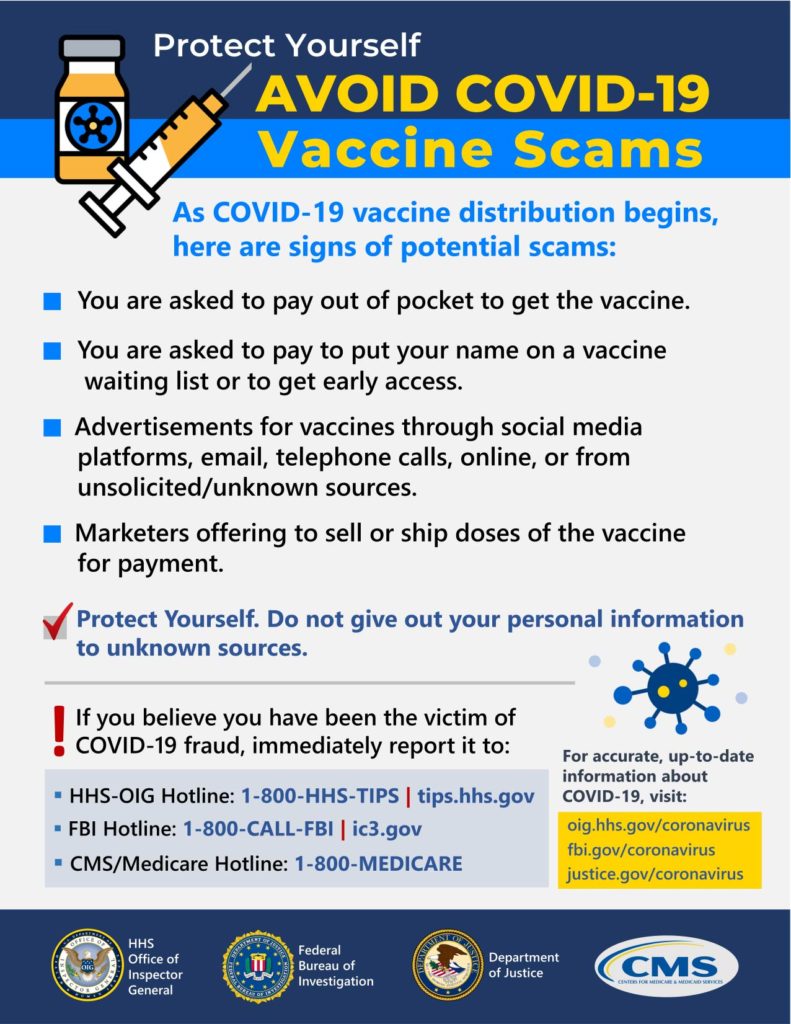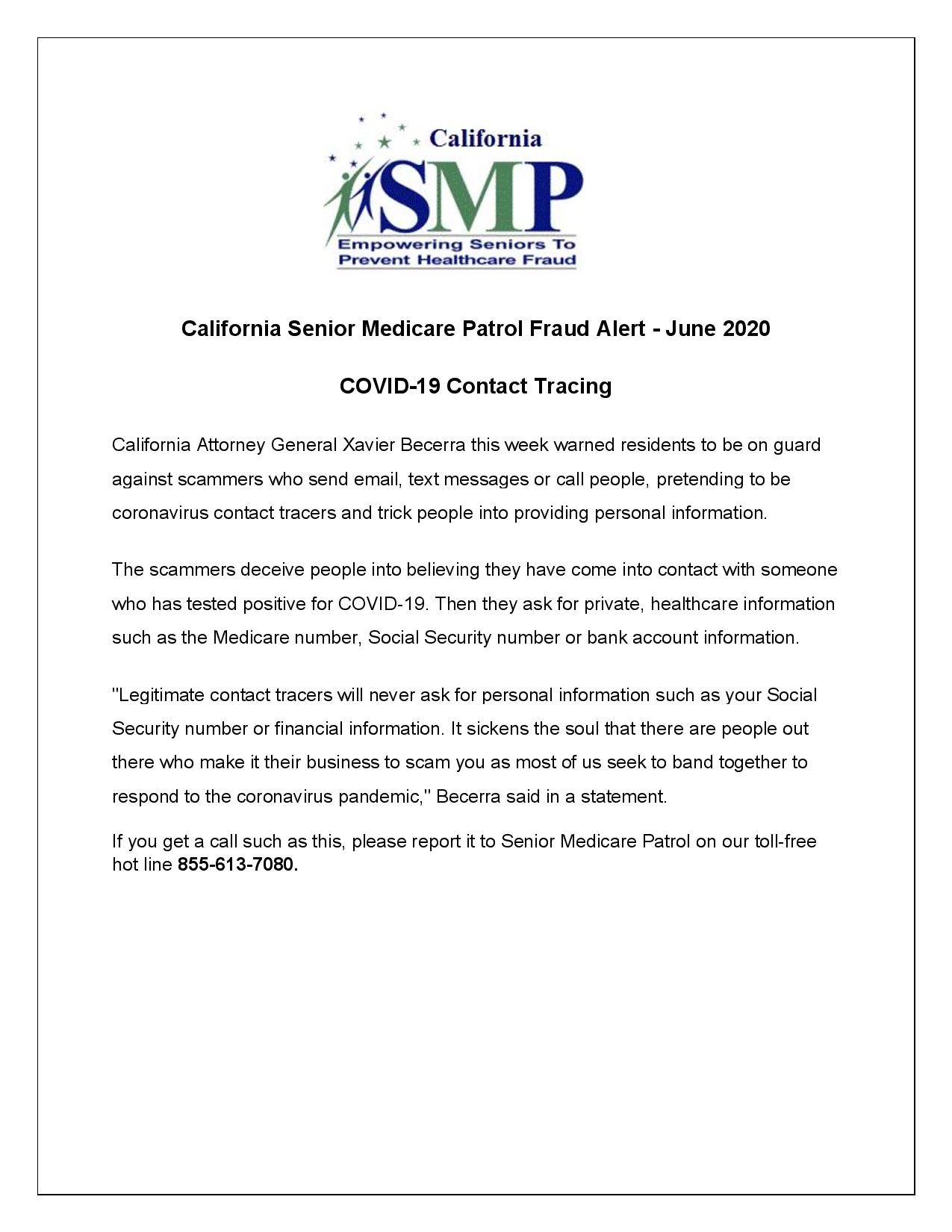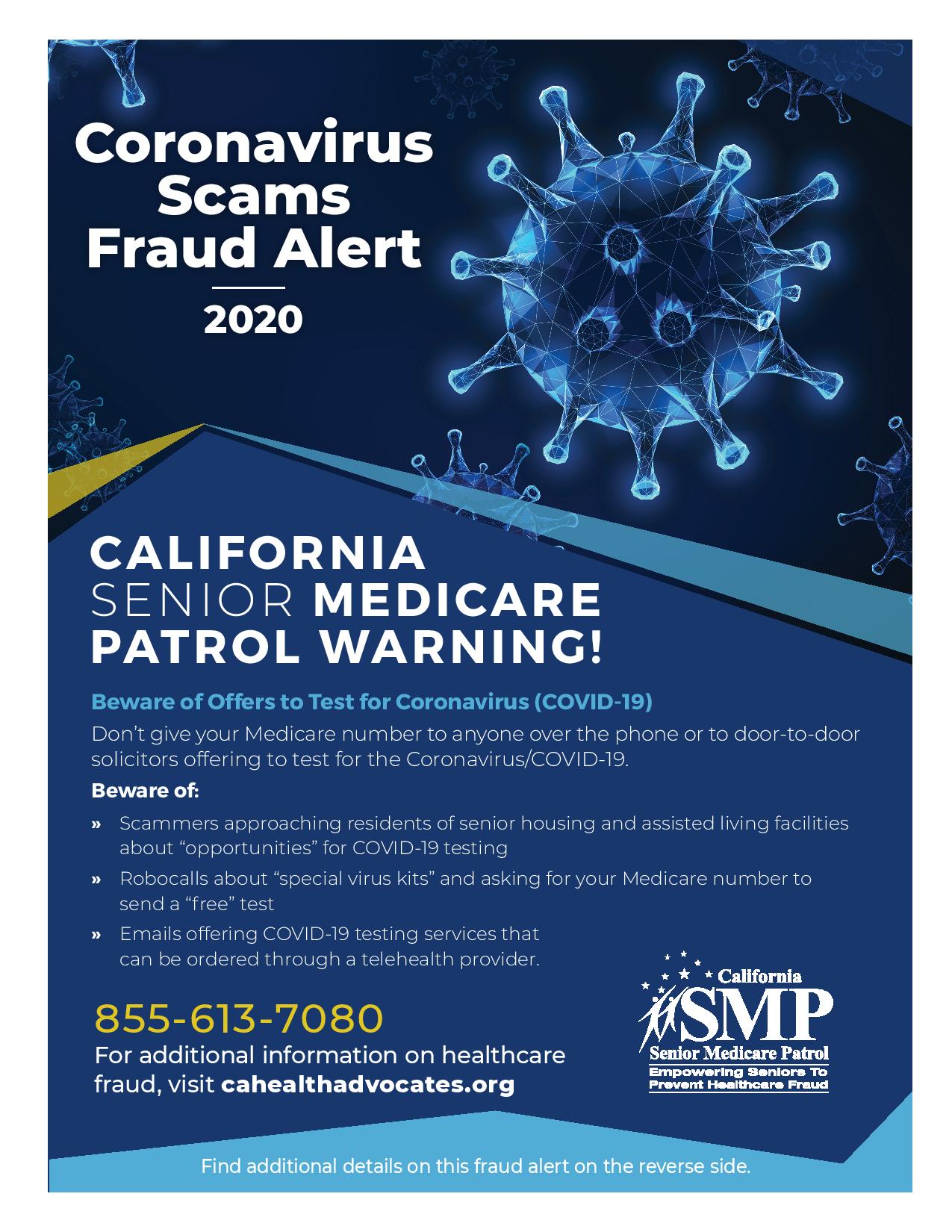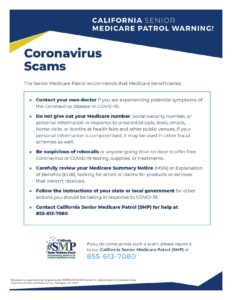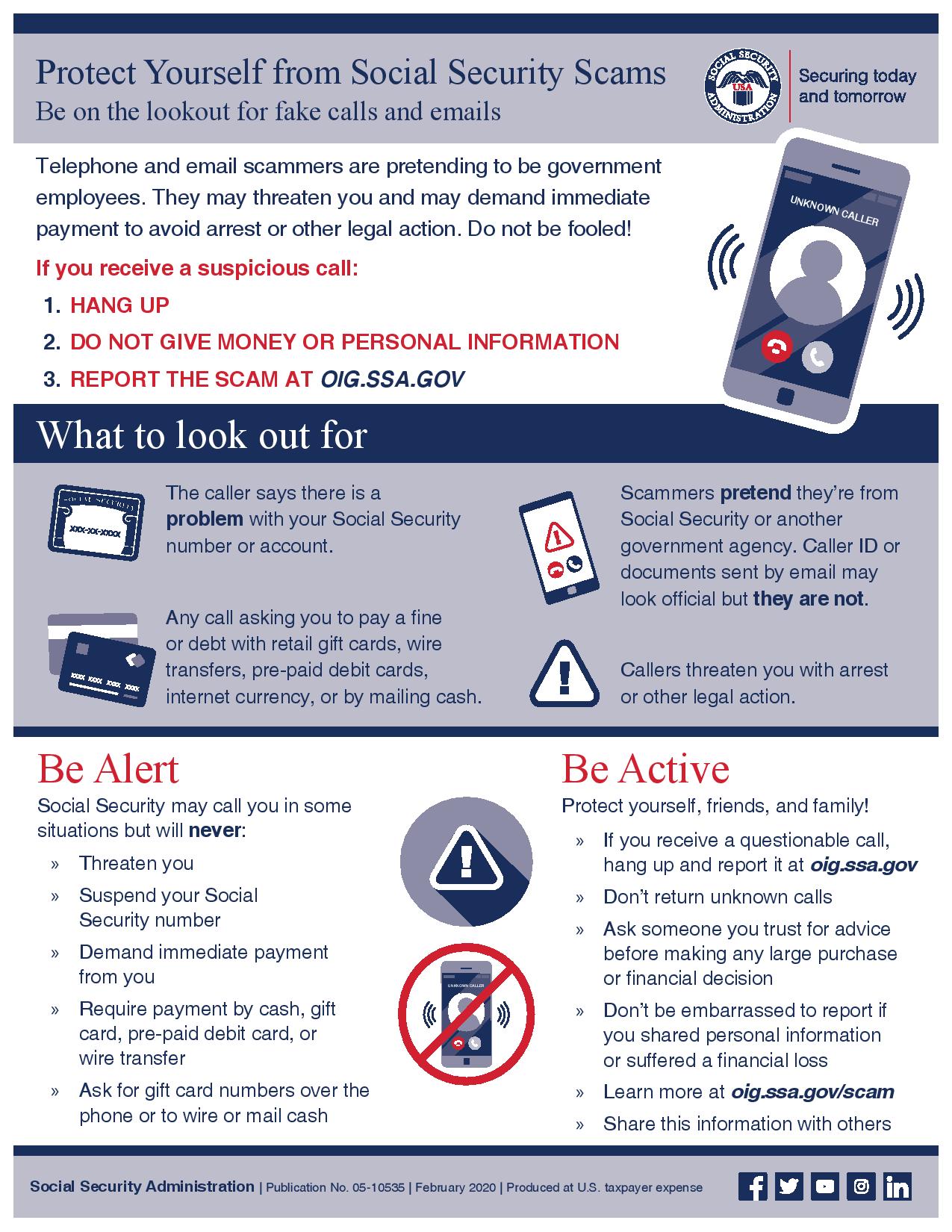From the Senior Medicare Patrol: Check with your health care provider before paying for or receiving any COVID-19-related treatment.
- You likely will not need to pay anything out of pocket to get the vaccine during this public health emergency.
- You cannot pay to put your name on a list to get the vaccine.
- You cannot pay to get early access to the vaccine.
- No one from Medicare or the Health Department will contact you.
- No one from a vaccine distribution site or health care payer, like a private insurance company, will call you asking for your Social Security number or your credit card or bank account information to sign you up to get the vaccine.
To report COVID-19 VACCINE SCAMS or fraud: 855-613-7080
Printable versions:
